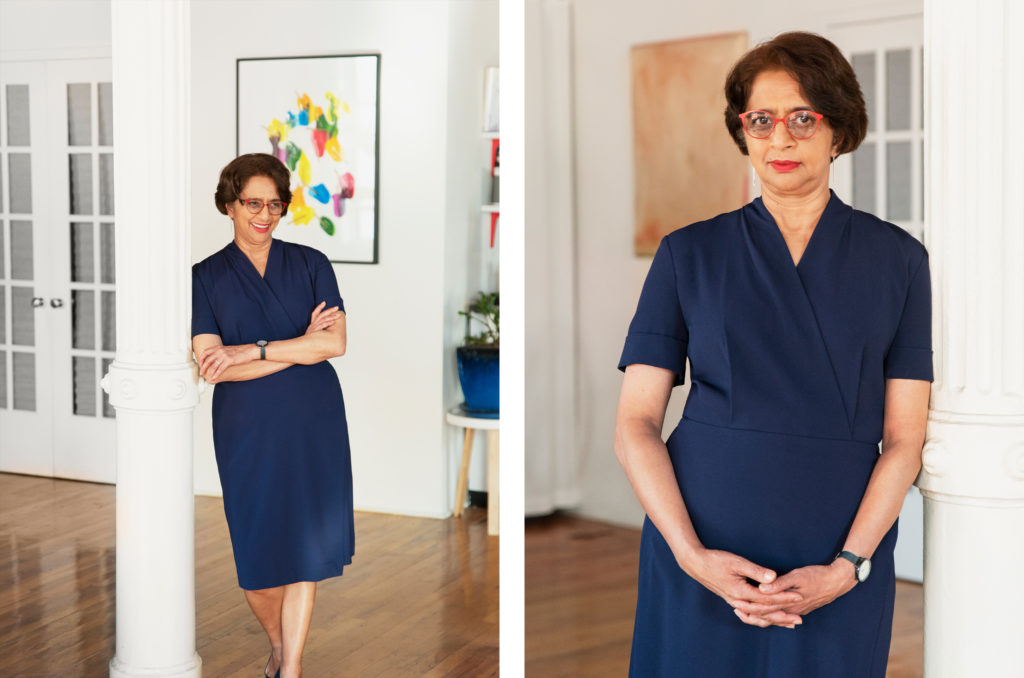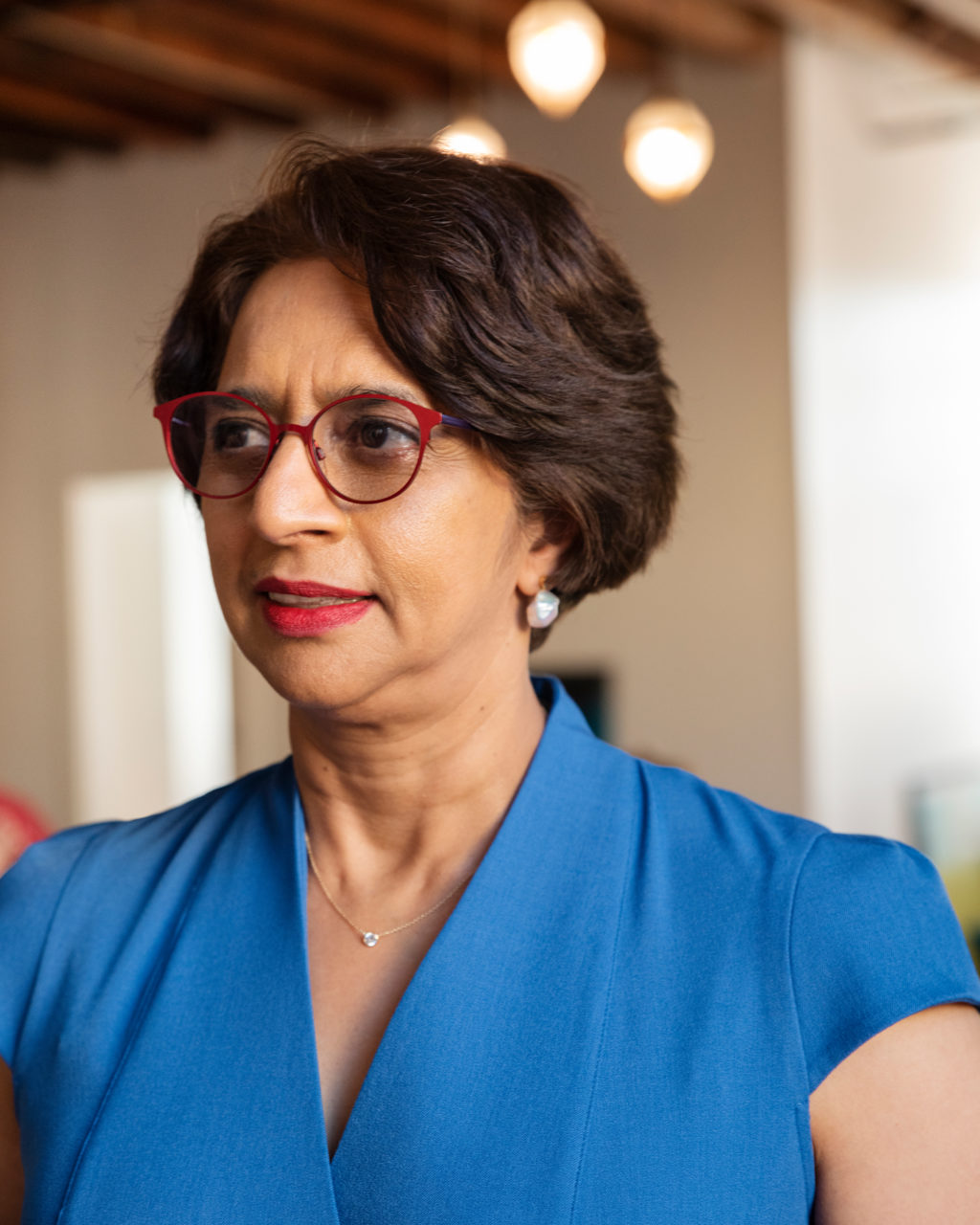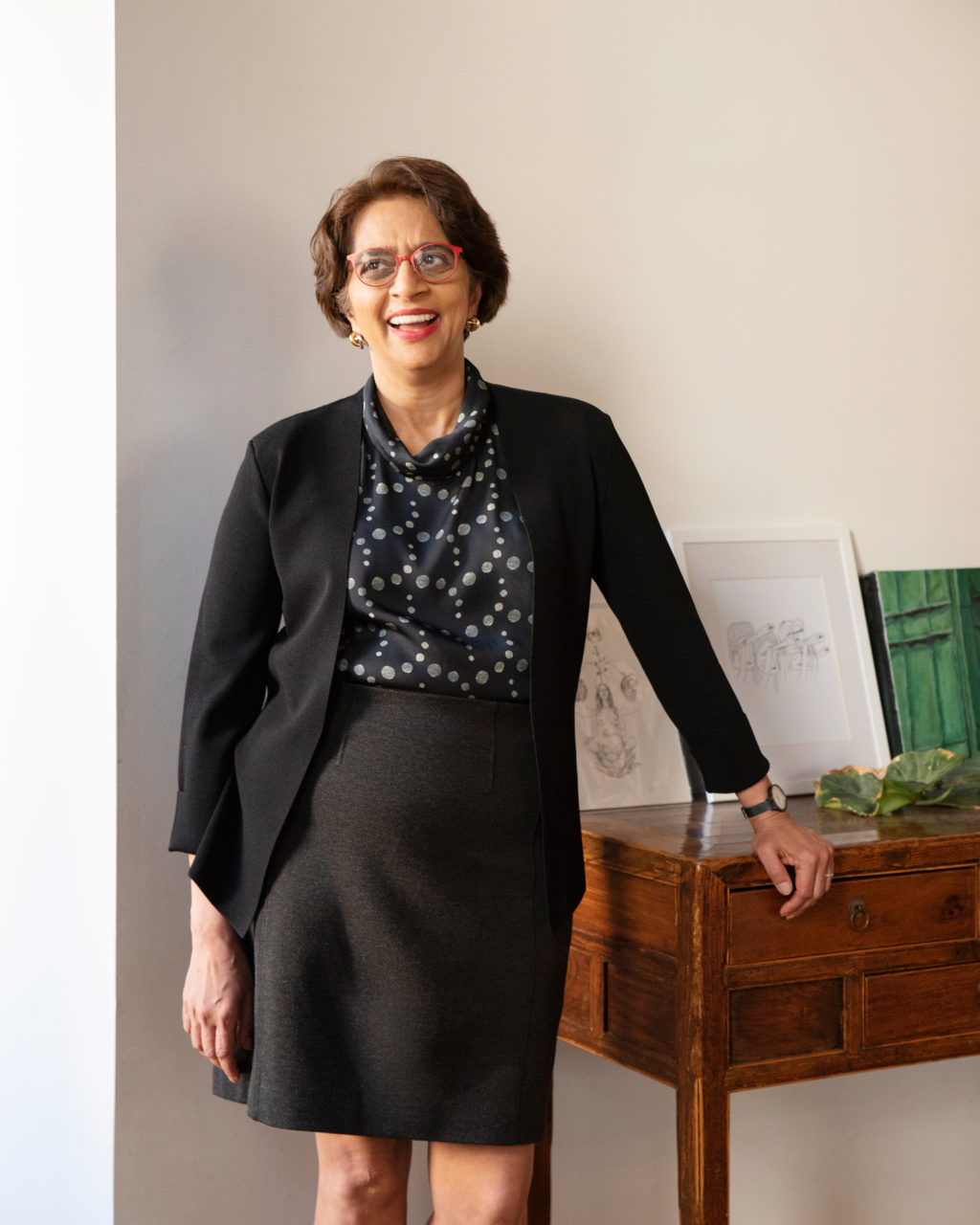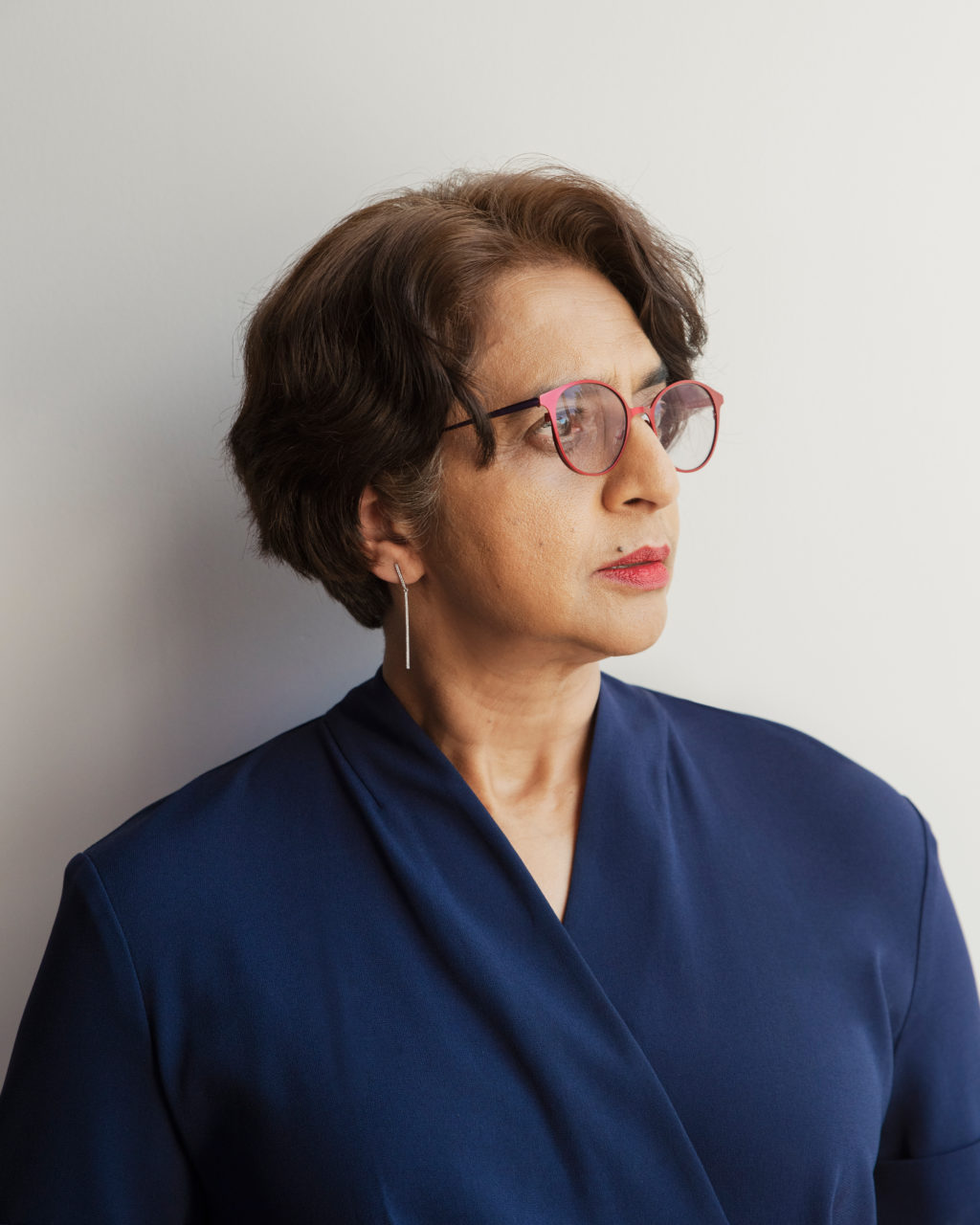Siva Kumari Was Only Supposed To Be A Good Wife—But That Was Never Enough For Her
November 01, 2019 | Filed in: Woman of the Week
Siva Kumari is one of the humblest achievers you will ever meet. “I’m surprised and heartened by how hard work continually pays off,” she says of her career ascent. Now the Director General of The International Baccalaureate (IB), she holds a Doctor of Education and multiple master’s degrees. But her career in education was anything but guaranteed. As a young girl in India, she was taught to be an ambitious wife—not an ambitious scholar or professional. Since then, she has built an impactful, global career through her particular brand of patience and persistence. Below, Siva talks to us about developing her own inner compass, fighting for education, and the importance of empowering both genders.
I GREW UP IN A VERY SMALL TOWN on the southeast coast of India. I had great parents, but they lived by the times and were very conservative. For instance, I wasn’t supposed to ride a bicycle because I was a girl. I wanted to keep my parents happy, but I was very curious. I would break the rules without going way out of bounds. My parents raised me to be a really good wife for someone: to be well-dressed, to be educated, to speak a few languages, and to be trained in arts like music and dance. Their goal was for me to be a good wife, and in my particular caste, girls were supposed to be married by the time they finished their bachelor’s degree or just before. But it didn’t happen for me on that schedule.
Want more M.M.? Sign up for our newsletter.
MY FATHER DIDN’T WANT ME TO GO FURTHER IN MY STUDIES, but I disregarded him and applied on my own to do a Master’s in Psychology at a university in India. That wasn’t a pleasant experience for him, but he knew I was determined to do it. I just thought, “There’s no way I’m going to compromise my education just because we didn’t find a husband for me.” It’s not that I was trying to be a rebel; I just felt it was the right thing to do.

Siva wears the Tory dress, the Williamina earrings, and the Ginger pump.
MY MARRIAGE WAS ARRANGED after I finished my master’s, and I followed my husband, who was a physician, to the United States. He was very busy with his residency, and I didn’t want to stay home, so I did another master’s program so I could get a job as a certified counselor. I called my parents, and they were like, “What’s wrong with you?”
WHEN I HAD MY DAUGHTER, I took three years away from work to be with her. I had grown up in this tight-knit community in India with lots of relatives. Everyone knew everyone. It had a bubble effect, but it also had a beautiful support effect because there was this “it takes a village” mentality. Children learned from all the adults in the town—not just their parents. In the U.S., we didn’t have any extended family, so I had to provide that support for my daughter. It was startling to go from such a rich community to being in a country where we had the freedom to be anything—but nobody really gave a damn who we were.

Siva wears the Hailey dress, the Capri earrings, and the Bezel necklace.
I ACTUALLY TOOK A BACKWARDS STEP when I went back to work. I decided to leave counseling and do a lower-level certificate in educational technology. It was my good fortune that I fell into education—there has been nothing more pleasurable in my life. Since then, my internal compass has led me to jobs that made me work hard, helped me grow, and really excited my brain. In education, I was finally in a field where my vocation and my passion were the same.
THE INTERNATIONAL BACCALAUREATE ADVOCATES FOR CHILDREN TO BE RAISED to grow into their full potential. It’s not a mentality of “academics over everything else.” It’s critical thinking, balance, being caring and compassionate for yourself and others. Those are the skills that eventually translate to leadership. I experience that as well—I can’t lead by being just one way. On any given day, I have to switch from being in a meeting and making quick decisions, to sitting and listening intently to someone. We all need to be able to do both.

Siva wears the Woolf jardigan, the Lise top, the Crosby skirt, and the Roberta earrings.
OUR FOCUS IS REALLY TO STABILIZE CHILDREN’S SELF-CONFIDENCE and help them develop their own internal compasses. Children today are dealing with so much information; when something happens in the news—like a shooting in Texas—we feel it everywhere. Past generations didn’t have to deal with that. We help children navigate the information while retaining their core values. Boys and girls need this equally; we all need to cultivate compassion. I don’t necessarily focus on “female empowerment,” but rather, the equal empowerment of both genders.
AS A CHILD, I WAS TAUGHT to be perfectly dressed. You had to be. My parents made sure I was always in neat, ironed clothes that were the right colors and were fashionable for the time. When I moved to the United States at 21, I was completely lost. I had never dressed in the western style before. I had no idea what would look good on me or what the right brands were. My husband was of no help, clearly. But little by little, I found my way, and now I have way too many clothes.

Siva wears the Tory dress, and the Williamina earrings.
I LIKE A CLEAN, DRESSED-UP LOOK, and I travel a lot for work, so I have to stay organized. I pack my office clothing on the top of my suitcase, so if I’m getting off a nine or ten-hour flight, I can change quickly. And on Sundays, I look at my calendar and pick my outfits and accessories for the week. That way, in the morning, I can grab what I had set out and get on with my day.
MY RELATIONSHIP WITH MY CLOSET is probably in need of some counseling. I’ve lived in so many places and collected so many clothes over the years, and I’m incapable of giving them up. My daughter says they’re not “curated” enough. She loves M.M.LaFleur and is an advocate for buying just a few great pieces and keeping your wardrobe small, so I’m working on that.
Want to nominate a Woman of the Week? Email us at womanoftheweek@mmlafleur.com.
Photos by Matthew Priestley.
Styling by Nyjerah Cunningham.





